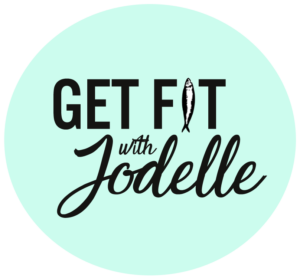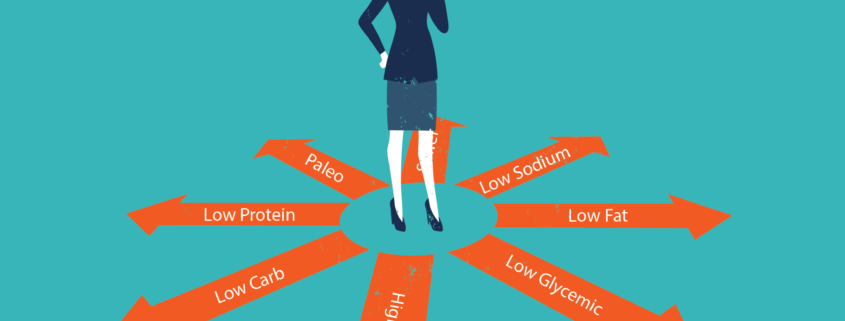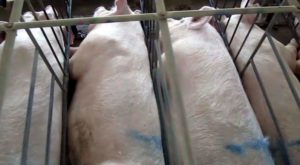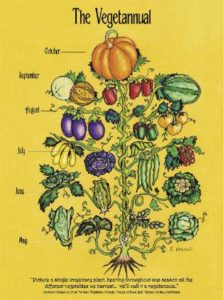Carnivore, Omnivore, Plant-based & Diet Confusion….WOE….
The carnivore movement. Meat eaters are carving their way of health in the nutrition community, neck in neck with the butter-noshing Ketogenic fat lovers. (Fat on, my friends!)
Just behind them comes the Whole30, Paleo pals who hunt and gather their nuts, seeds, berries, as well as their paleo cupcakes. (No offense intended, I’ve made them too.)
Not to be outdone, the plant-based, vegans, vegetarians are holding true to their values around all things planted, plowed, and pulled from the earth. (Yep, done this approach too).
And there’s those who intermittently fast, those who insist on potatoes not prozac, those who live from corner drive-in to the corner cafe, and those who’s meal plan changes each month according to what the latest Shape magazine diet of choice is.
As a nutritionist, almost daily I get the million dollar question, “What should I eat because I am so confused by all the information out there?”
Diet Confusion. Have you suffered from it before? There was a time I did too.
Even my recent research into the history of pork led me to think of crispy bacon as less than appetizing. I had heard some distressing facts growing up about hog farms since my father owned one before I was born, and told me some pretty horrendous stories. But it wasn’t until I recently I learned:
- most conventional pigs are forced into cramped conditions, often with their bodies smashed into their own confined cage where their bodies are pressing through the bars…
- Up to 88% of all antibiotics in animal feed are used on swine to keep them from becoming ill as they lay on the ground putting on massive weight without fresh air or sunlight exposure.
- China produces over half of the world’s pork. That fact alone is concerning.
As I pondered this, I recalled to mind something I had read in a book called “The Onmnivore’s Dilemma” about pigs in CAFOs (concentrated animal feeding operations) having their tails brutally snipped off so as to avoid another piglet from sucking on it, since the young swine are weaned all too soon from their mothers and have a strong sucking mechanism, …something that made me gasp out loud whilst reading the book.
The books author, Michael Pollan wasn’t demonizing pork as a “never”, but instead wisely explains what is taking place within our food systems from an industrial, factory, farmed, and forested level. And he proposed a question that plagues us all within the mass of food and information out there: “What should I eat?”
In the book, Michael follows the history of 4 of his meals and traces them back to their roots, some of which are quite concerning. The fast food meal option he chooses leads him to discover that the majority of his meal comes from one food: pesticide laden corn. In his second meal of choice, Rosie, a seemingly healthy organic option of a chicken, finds him tracing his steps back to a chicken CAFO with 20,000 birds confined to a 100feet long shed with no outdoor exposure to the outdoors until 5 weeks of age…..bearing in mind, the chickens are slaughtered at 7 weeks. Not an incredibly sustainable bird, if you ask me. A new, less impressive label of organic began to form in his mind. That is, until he visited Polyface Farm, a self-sustaining, passionately planned, and orchestrated farm where the animals and the land work in tandem as the farmer and farm-hands simply make sure everyone is where they need to be, forming a truly organic experience. Run by a farmer who believes nature knows best and that meat has no business having a bar code or being shipping across the globe. The foods from Polyface Farm left no carbon footprint behind, and was found by the author to be some of the best food he has ever eaten, and the best eggs to make a chocolate souffle with for his third meal. He rounds out his meal adventures with a primitive forest experience of hunting and gathering from the earth himself and seeing what we can consume when left to our own natural resources.
Plain and simple, one of my favorite sentences in the book touches on the fact that whether you are carnivore or vegan makes no difference here. For we have “omni-competent” teeth, both for tearing flesh, and/or grinding plants. No matter what to choose to call ourselves, the fact remains that we are omnivores.
We can settle on a weight loss regimen of low fat or low carb. Determine whether it is ethically moral to eat meat or not. Focus on avoiding oxalates, or avoiding lectins, or swearing off gluten once and for all. That’s all up to our individual personal choices, nutritional needs, and taste preferences.
But one thing we all should all agree to do our best with and do our part for the planet is to eat foods that are sustainable, both to our beloved planet, and to the continuation of the animal, plant, and the land it’s grown on.
While diet confusion is real, ignorance is NOT bliss, and if health is a true concern, then perhaps it’s time we invest more in quality, local-grown, sustainable sustenance rather than investing more in the car we drive and the type of cell phone we carry around (especially since the latter two actually deter our health rather than help it).
The issue is not, “What should we eat?” Or “What is the healthiest diet?” The issue should be, “What value do I place on my long-term health and the health of the planet?” Value in the sense of the “Value meal” that McDonald’s offers places NO value on our health or sustainability of our food system, but rather values their bottom dollar. Value with regard to our true moral values, and treating animals, plants, and all life on this planet as you would like to be treated and with regard to a return investment on your health….now that’s what I call a value meal, no matter what eating approach you happen to choose to follow.
“The blessing of the omnivore is that he can eat a great many things in nature. The curse of the omnivore, is that when it comes to figuring out which of those things is safe to eat, he’s pretty much on his own.” – Michael Pollan, The Omnivore’s Dilemma








Great article, love to read your blog. Thank you.